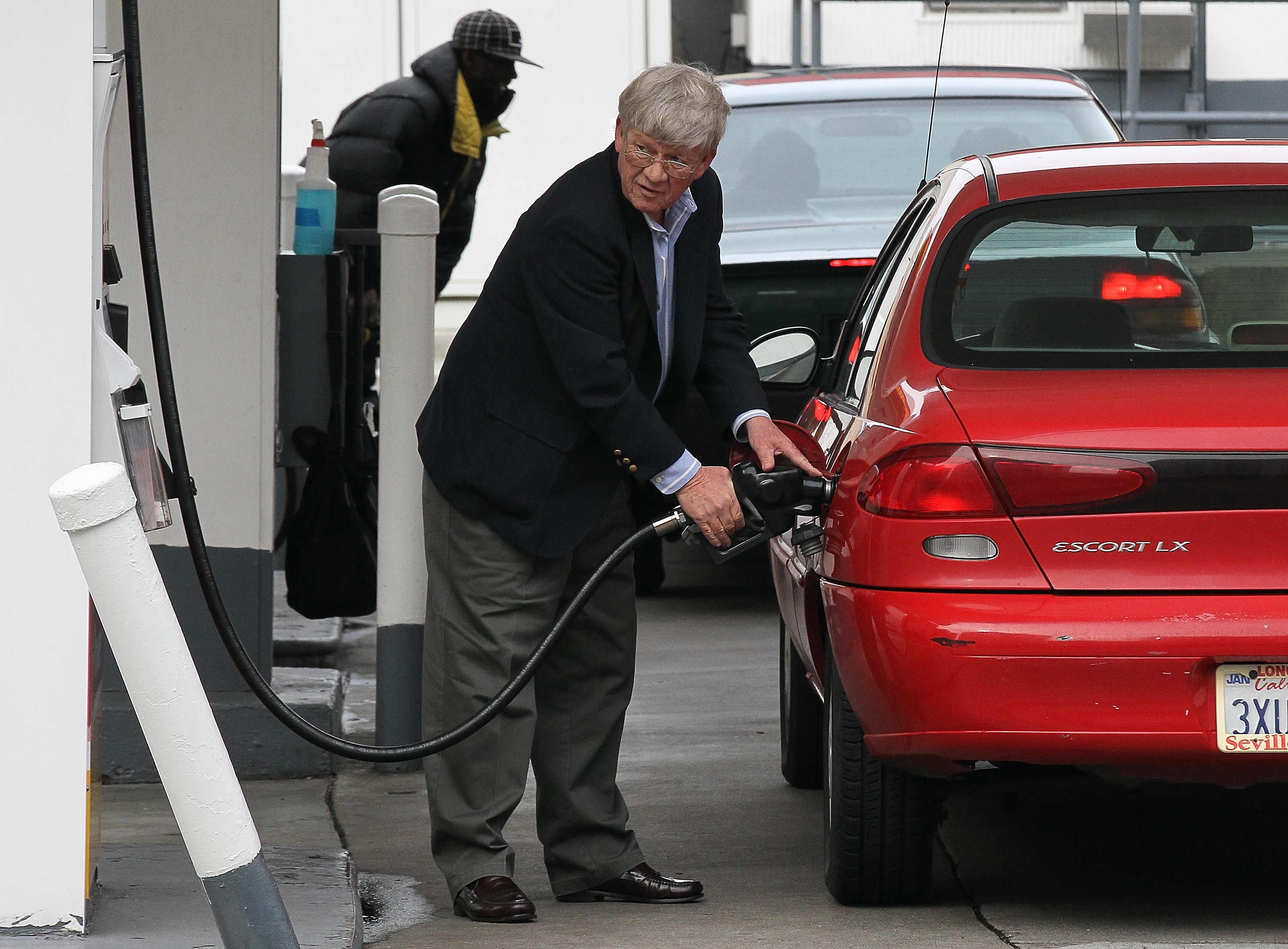Gasoline prices drive US consumer prices lower in December
The December energy index fell 3.5 percent (JUSTIN SULLIVAN)
Washington (AFP) – Falling fuel prices in December pushed US inflation to its slowest pace in more than a year, masking steady gains in food and shelter costs, the government reported Friday.
The new figures confirm the view of central bankers that they can hold off on raising interest rates again any time soon in the absence of inflation pressure.
The Consumer Price Index, which tracks costs for household goods and services, fell by 0.1 percent last month from November, when it was unchanged, according to the Labor Department. It was the first decline since March and matched economists’ expectations.
For 2018, the index rose a tepid 1.9 percent, dipping below two percent for the first time in 16 months.
The December energy index fell 3.5 percent, led lower by weakening gasoline and fuel oil prices, while food costs rose 0.4 percent.
Excluding the volatile food and fuel categories, core CPI rose 0.2 percent for the month. That also was in line with expectations and reflected higher costs for housing, home furnishings and medical care, according to the monthly report.
Core CPI held steady at 2.2 percent for the year.
After rising steadily in the first part of the year, inflation has been trending lower since July, confounding expectations that steady job growth, falling unemployment would at last drive prices higher.
Federal Reserve Chairman Jerome Powell and other Fed officials have signaled clearly in recent days that they will pause interest rate increases while they evaluate the economy, but see no inflation threat for now.
But some economists are not convinced the inflation dragon has been slayed.
Food costs “look like they could be back on the rise,” economist Joel Naroff said, lamenting an increase in cake prices. “The drive to eat healthier is becoming much more expensive as fish and seafood costs are jumping.”
In addition, he cautioned, “The tight labor market continues to push up wages, which rose sharply in December.”
But Ian Shepherdson of Pantheon Economics noted that auto prices and airline fares likely will be coming down further and while new tariffs could raise prices “overnight,” he expected the United States and China to reach an agreement to end their trade war.
Naroff questioned the need for the Fed to pause, noting the recent stock market declines were due to a pullback from “irrational exuberance.” He said economic data would justify another interest rate increase in March.
Disclaimer: This story is published from a syndicated feed. Siliconeer does not assume any liability for the above story. Validity of the above story is for 7 Days from original date of publishing. Content copyright AFP.


